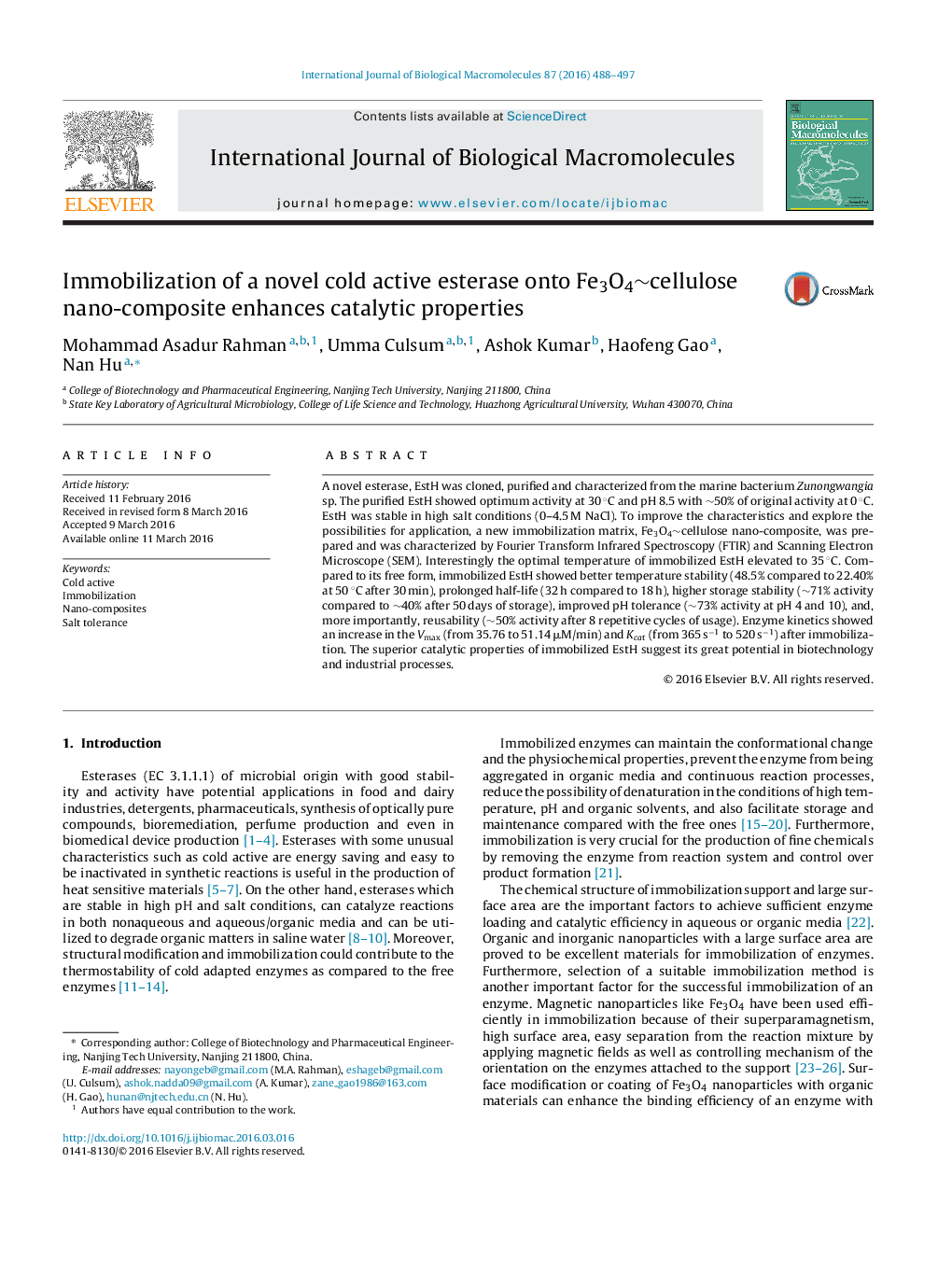| Article ID | Journal | Published Year | Pages | File Type |
|---|---|---|---|---|
| 1986229 | International Journal of Biological Macromolecules | 2016 | 10 Pages |
Abstract
A novel esterase, EstH was cloned, purified and characterized from the marine bacterium Zunongwangia sp. The purified EstH showed optimum activity at 30 °C and pH 8.5 with â¼50% of original activity at 0 °C. EstH was stable in high salt conditions (0-4.5 M NaCl). To improve the characteristics and explore the possibilities for application, a new immobilization matrix, Fe3O4â¼cellulose nano-composite, was prepared and was characterized by Fourier Transform Infrared Spectroscopy (FTIR) and Scanning Electron Microscope (SEM). Interestingly the optimal temperature of immobilized EstH elevated to 35 °C. Compared to its free form, immobilized EstH showed better temperature stability (48.5% compared to 22.40% at 50 °C after 30 min), prolonged half-life (32 h compared to 18 h), higher storage stability (â¼71% activity compared to â¼40% after 50 days of storage), improved pH tolerance (â¼73% activity at pH 4 and 10), and, more importantly, reusability (â¼50% activity after 8 repetitive cycles of usage). Enzyme kinetics showed an increase in the Vmax (from 35.76 to 51.14 μM/min) and Kcat (from 365 sâ1 to 520 sâ1) after immobilization. The superior catalytic properties of immobilized EstH suggest its great potential in biotechnology and industrial processes.
Related Topics
Life Sciences
Biochemistry, Genetics and Molecular Biology
Biochemistry
Authors
Mohammad Asadur Rahman, Umma Culsum, Ashok Kumar, Haofeng Gao, Nan Hu,
